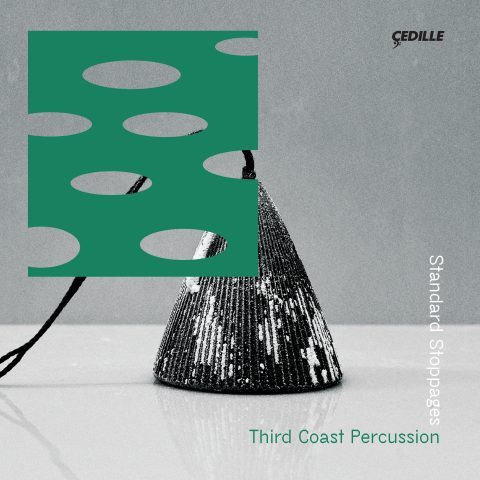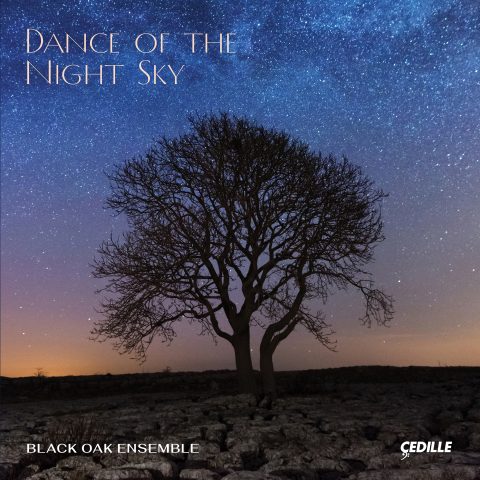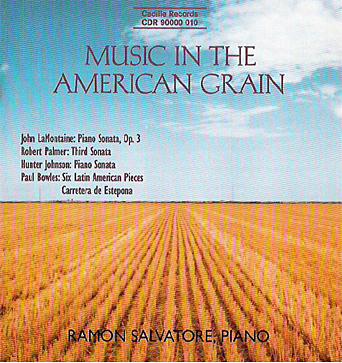
Discover
A Conversation with Grammy-Nominated Sound Engineer, Mary Mazurek

Mary Mazurek and Cedille’s engineer Bill Maylone received a Grammy Nomination in Best Engineered Album, Classical for their outstanding work on Liquid Melancholy — Clarinet Music of James M Stephenson. In a Cedille exclusive interview, Mary Mazurek discusses the unique aesthetic of the album, working with Bill, and the excitement of being a nominee.
What qualities of Liquid Melancholy Concerto for Clarinet and Orchestra did you find unique, how did you highlight those elements with your own recording style?
In addition to John Yeh’s clarinet, I noticed some very intricate percussion and some very melodic harp lines, and I really wanted to highlight those, while keeping them in context with the rest of the orchestra. That meant placing the microphones close enough to the instruments to bring out their individuality while leaving enough space to allow them to blend with the orchestra. I chose microphones with sonic characteristics that would highlight the qualities that I was seeking.
When placing microphones, we also have to keep in mind the musician’s comfort. I had to make sure that the microphones wouldn’t interfere with their playing. Percussionist Debbie Katz Knoweles was great to work with.
What was it like working with Bill & musicians on Liquid Melancholy?
I’ve known Bill Maylone for a long time and have been of technical assistance at time when he has recorded here at WFMT for Cedille.
Interestingly enough, I wasn’t supposed to work on this project at all, but Bill had a scheduling conflict, so I was asked. Since I had worked with the Lake Forest Symphony before to produce a radio documentary for WFMT on the search for their music director, which resulted in the appointment of Maestro Kulenovic, I very happily said yes.
Bill and I met one afternoon at the James Lumbar Center for the Performing Arts to look over the space. I talked about my ideas for mic-ing and placement, and he agreed.
What are some of sound engineering challenges when recording an orchestra for a recording like Liquid Melancholy?
There can be many challenges when recording on location, but fortunately through my live broadcast work at WFMT, I am quite familiar with recording ensembles on remote.
Specifically, with this recording, the orchestra uses an acoustic shell, which provides many sonic benefits, but does not allow for microphones to be hung from the ceiling. All microphones had to be placed on stands and then struck after every performance and rehearsal and put back exactly they way they were. My assistance Marshall Towsky was a really big help with this measuring, documenting, and helping me setup and strike each time.
Another challenge was that were was no isolation for the production team. We basically sat on stage behind the acoustic shell and worked off of headphones. Headphones exaggerate the stereo image, so it’s important to know how they will translate over speakers.
Finally, there is no room for failure. The orchestra must be captured live. If the recording fails, that moment in time is gone forever. Therefore, I always have a backup recording system, which fortunately, we never needed.
What are you most excited about as a nominee?
I’ve attended the Grammys several times in the past as a governor and representative of the Chicago Chapter of the Recording Academy, but this is special because it is my first nomination, and I am very happy to be on the ballot with Bill Maylone. We are both very proud of the work that we have done on this album, and Bill is just a fantastic engineer and most deserving of this honor.
Watch the full video interview here:
Recommended
Grammy Award-winning Third Coast Percussion (TCP), praised by NPR for championing “borderless music” and “blurring musical boundaries,” celebrates its 20th anniversary in 2025 with Standard Stoppages, an album that explores how time can be stretched, manipulated, played with, and reimagined.
Dance of the Night Sky, Black Oak Ensemble‘s third album for Cedille, expands the boundaries of string trio repertoire by offering listeners a vibrant collection of contemporary works including four world-premiere recordings, all by British women composers.
Our new update of our Third Coast Percussion playlist celebrates this month’s release of the ensemble’s 7th album for Cedille as they mark their 20th anniversary with a collection of world premieres titled Standard Stoppages. We’ll add tracks from the new CD when it’s released on April 11.
Enjoy 25% off Cedille’s Weekly Featured Release.



